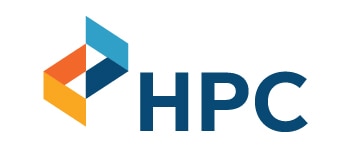- Massachusetts Health Policy Commission
Media Contact for PERSISTENTLY HIGH OUT-OF-POCKET SPENDING AN INCREASING BURDEN ON MASSACHUSETTS RESIDENTS
Matthew Kitsos, Press Secretary
BOSTON — Yesterday, the Massachusetts Health Policy Commission (HPC) released a new DataPoints issue examining trends in persistently high out-of-pocket (OOP) spending for residents of the Commonwealth. The HPC has estimated that nearly 40 cents of every additional dollar earned by Massachusetts families between 2016 and 2018 was spent on health care, and that 23% of middle-class families with employer coverage in Massachusetts devoted more than a quarter of all earnings to health care. Health care affordability and equity continue to be significant concerns for Massachusetts residents, as health insurance premiums continue to rise year after year, and OOP spending on deductibles, copayments, and co-insurance rises even faster (5.6% in 2018). The findings in this analysis underscore the need for continued dedication to ensuring equitable and affordable health care in Massachusetts, a continued area of priority for the HPC.
This issue of DataPoints looks at commercially insured residents with the highest amount of OOP spending (top 10% of all residents studied) from 2015 to 2017. OOP spending does not include spending on over-the-counter medications or for benefits outside of an individual’s health insurance plan (such as cash payments for out-of-network therapists).
“This new analysis clearly shows that many people in Massachusetts are facing persistently high out-of-pocket costs and that burden is increasing as a portion of income year over year,” said David Seltz, HPC Executive Director. “We will continue to monitor these trends and make policy recommendations to address affordability challenges with our interagency and Legislative partners.”
Key Findings:
- For the population with persistently high OOP spending, cost-sharing for prescription drugs comprised a larger portion of total OOP spending (27.2%) than for other individuals. This suggests that these members may use more costly drugs, require a higher number of prescriptions, or have less generous prescription drug coverage.
- High OOP spending can represent a substantial proportion of income for people with low incomes. In 2017, OOP spending for members with persistently high OOP spending would consume almost 8% of income in the lowest-income areas of the state (areas in the bottom 10% by income), versus just over 2% among members living in the highest-income areas in the state (areas in the top 10% by income).
- Individuals with persistently high OOP were more likely to have a chronic condition, be employed by a smaller firm, and live in the Cape and Islands region.
Read the full DataPoints issue here and find a printable PDF version of the brief here.
###
The Massachusetts Health Policy Commission (HPC) is an independent state agency that develops policy to reduce health care cost growth and improve the quality of patient care. The HPC’s mission is to advance a more transparent, accountable, and equitable health care system through its independent policy leadership and innovative investment programs. The HPC’s overall goal is better health and better care – at a lower cost – for all residents across the Commonwealth. For more information, please visit the HPC's website (www.mass.gov/hpc) and Twitter account (@Mass_HPC).
###
